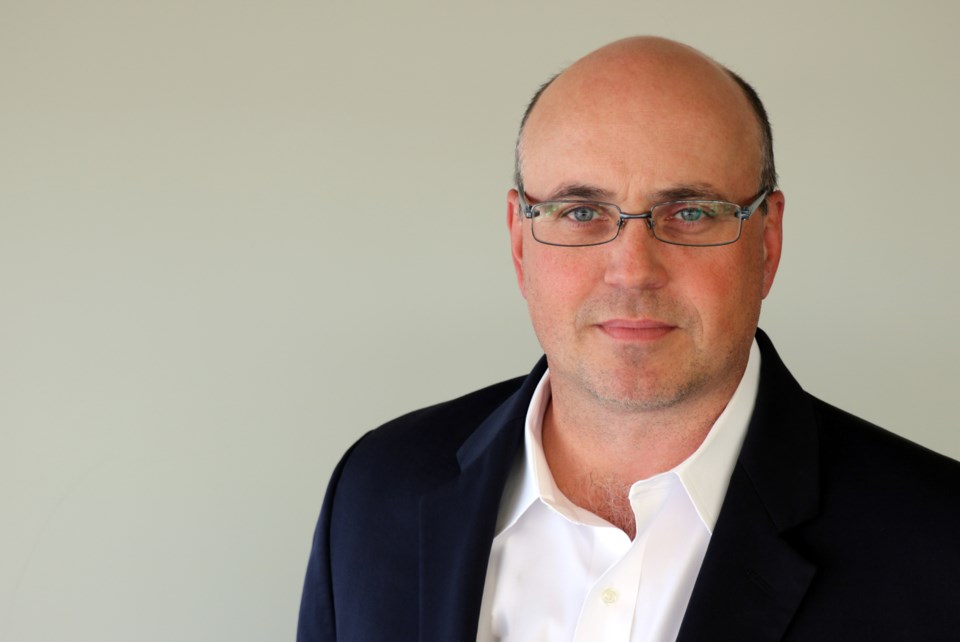When first green-lighted by Sault Ste. Marie City Council in 2018, PUC's bleeding-edge smart grid project was supposed to be completed by early last year.
It was supposed to be the first community-wide project of its kind in Canada, lowering our monthly PUC bills, minimizing size and duration of power interruptions, slashing local carbon dioxide emissions equivalent to greenhouse gases produced by 600 passenger cars or 420 homes.
Obviously, it didn't materialize exactly as planned.
But the smart grid project still has legs and Rob Brewer, PUC president and chief executive officer, updated councillors on it this past week.
Brewer said that when Sault Ste. Marie's big power plan was first pitched to the Ontario Energy Board, the OEB recommended a number of tweaks.
"We're moved to a traditional financing model, based on feedback that we received from the OEB through that original process, and the fact that PUC is in a much stronger financial position," Brewer said.
"The change in financing results in some direct savings, greater direct involvement and control of the project, and allows us to get guarantees on the energy savings from the [engineering, procurement, and construction contractor] Black & Veetch. Direct involvement allows us to retain more expertise and technology within the PUC ranks."
"The amended application was submitted in the fourth quarter of 2020 and it is currently in the final portions of the interrogatory phase."
"We expect to have a go or no-go on the project later this year, probably mid to end of [the second quarter]. And we will return to council when it's approved with a revised project schedule, revised financing and a final budget and the projected ratepayer savings," Brewer said.
As explained by Brewer, the smart grid initiative offers two main components: voltage optimization and distribution automation.
Here's how he explains voltage optimization:
"Most appliances in your house consume energy at a voltage range. So the energy that you use is directly proportional to the voltage that comes through the wires. What we're able to do with voltage optimization is optimize the voltage that our customers receive into the lower band that's acceptable for those appliances, which results in lower consumption of energy."
"It also results in lower generation requirements for energy, which results in lower greenhouse gas emissions because some of the generation that is used in this province emits greenhouse gases. By controlling that voltage, we're able to optimize it to the lower end of the band, and customers see a net benefit through energy savings and we all see a net benefit through a cleaner environment."
Distribution automation, on the other hand, is a matter of ensuring the power system's reliability.
Here's Brewer's take on that:
"The distribution automation portion of the smart grid project basically puts intelligence into the system. It allows it to self-heal. So as there's a fault in the system, the sensors identify the area that fault is in, they'll isolate that area and then they'll re-establish power into the areas they can isolate outside of that. So instead of having hundreds or thousands of customers off because of a single fault, we can have a handful."
The smart grid idea has been kicked around at PUC headquarters since Mayor Christian Provenzano was first elected six years.
"This has been a long time coming," the mayor says.
"I think it's an incredibly important project for our community. I would love to see it come to fruition in the very near term, so we could lead on it. I have no doubt that many other communities would follow us. I have no doubt that when it's done and implemented, it's something down the road that we will see paid a number of dividends and was a smart thing to do."
"I thank the team for really sticking on that because it's not been easy," Provenzano said at Monday's City Council meeting.
"The process you have to go through to get it approved has been obviously an onerous process. They've stuck with it and we're getting farther down the road and it's something that I'm excited about and happy to see us continuing to drive forward on."
